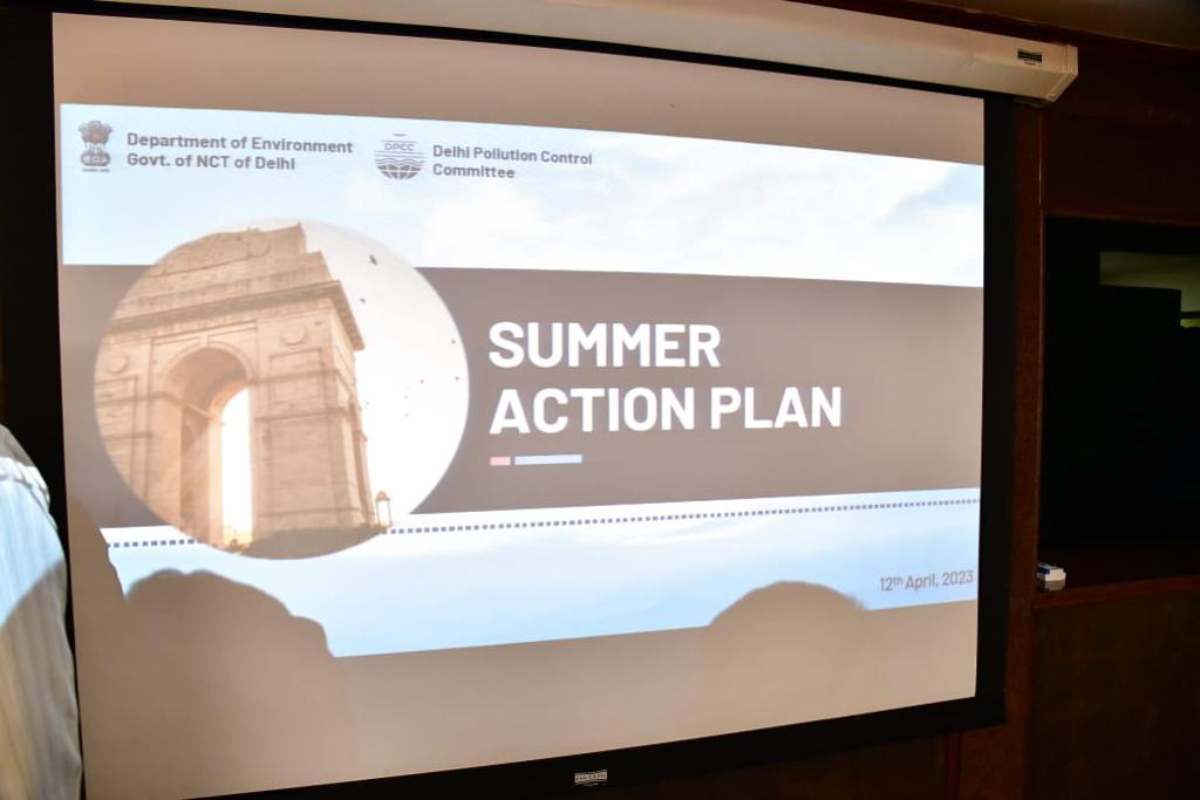Perception being built against Kejriwal through repeated summons: Rai
The ED is not even waiting for the court's decision, rued the AAP’s Delhi convener.
While chairing a meeting of all the departments concerned at the Delhi Secretariat, the Delhi environment minister said the action plan includes focus points like dust pollution, industrial pollution, noise pollution, water pollution and communication with neighbouring states.

[Photo : SNS]
Delhi Environment Minister Gopal Rai on Wednesday said this year’s Summer Action Plan includes focus points like dust pollution, industrial pollution, noise pollution, water pollution and communication with neighbouring states.
Rai was chairing a meeting of all the departments concerned at the Delhi Secretariat regarding the Summer Action Plan on Wednesday.
Advertisement
Officers from Environment Department, DPCC, Development Department, Delhi Cantonment Board, CPWD, DDA, Delhi Traffic Police, Delhi Police, DTC, Revenue Department, DSIIDC, Education Department, DMRC, PWD, Transport Department, NHAI, Delhi Jal Board, DUSIB, NDMC etc were present in the meeting.
Advertisement
The Delhi Environment Minister said all the departments have been assigned different responsibilities on the 16 focus points, according to which the Summer Action Plan will be prepared.
All the departments have been directed to submit their detailed action plans and suggestions to the Environment Department within seven days i.e., by April 20. On the basis of which Summer Action Plan will be prepared.
Later in the day, Rai addressed a press conference at the Delhi Secretariat.
He said as a result of the Winter Action Plan implemented by the Kejriwal government during the winter season, there has been a steady decline registered in the presence of PM 10 and PM 2.5 in Delhi.
According to a Survey conducted in 2022-23, between 2016 and 2021, the number of days in Delhi’s AQI in good, satisfactory and moderate category increased from 109 to 160 and the number of days in poor and very poor category decreased from 217 to 196.
In addition, between 2016 and 2022, the number of days falling into the severe category declined as well; from 26 in 2016, it was only 6 in 2022. During the past eight years, the pollution level in Delhi has decreased by 30 per cent as a result of ongoing efforts.
As a result, following the success of the Summer Action Plan from the previous year, the Kejriwal government has begun making preparations to introduce a new Summer Action Plan to address the issue of pollution throughout the summer.
Rai said, “Immediate and long-term action plans for the control of Delhi’s pollution will be put into effect as part of this action plan. In this regard, a joint meeting of all the relevant departments was held today at the Delhi Secretariat.” The primary goal of this meeting is to create a joint action plan to combat pollution in Delhi. During the meeting, 16 main focus points were determined.
Specific tasks have been assigned to different departments to prepare an action plan based on the 16 focus points identified under the Summer Action Plan. On which all the departments will give their detailed report to the Environment Department within seven days i.e., by April 20. Based on this, a summer action plan will be prepared.
The Minister said, “Mainly 16 point focus points have been identified under the Summer Action Plan. On which the Government will work with priority in the coming days and on the basis of this the next summer action plan will be prepared.”
Following are the 16 focus points and their nodal agency:
The Summer Action Plan has 16 focus points, based on which the government will work to reduce Delhi’s pollution.
Advertisement